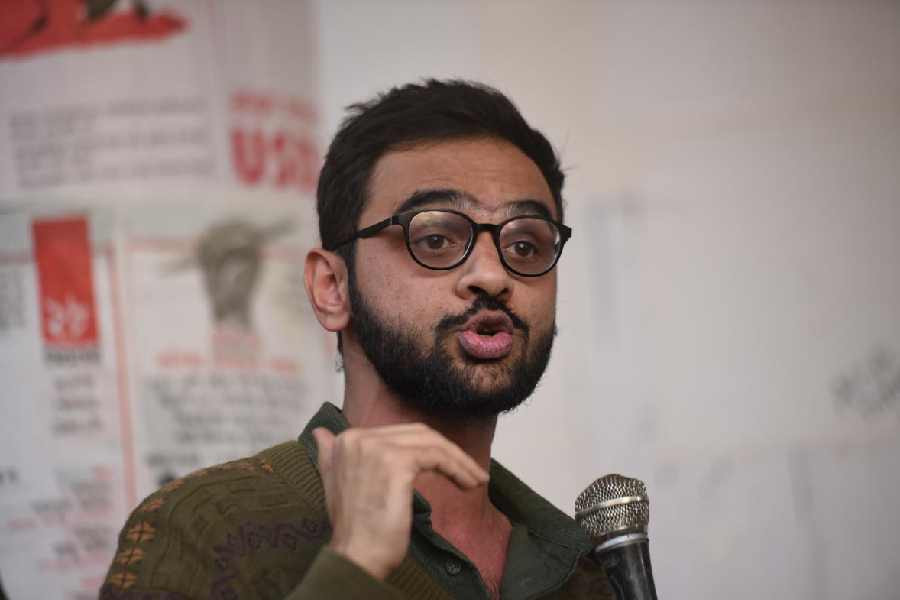The life and struggles of activist Umar Khalid since 2016 have closely mirrored the evolution of activism in Delhi during Narendra Modi’s tenure, a documentary on the former JNU research scholar screened on Facebook on Sunday night suggested.
The documentary, Prisoner No. 626710 is Present, on Umar was streamed to mark his 37th birthday, his fourth in prison.
Director Lalit Vachani was joined for a post-screening discussion online with Umar’s closest friends, some of whom appear in the film to explain the “tragedy of a brilliant historian” removed from his field of action as he awaits trial in the 2020 Delhi riots conspiracy case.
“The unfiltered, unedited Umar to me is a planetary treasure… like many young people of this generation,” explained artist Shuddhabrata Sengupta — a regular visitor of Umar and chronicler of the bail hearings in the case.
Besides Umar, 11 others are awaiting bail in the case where the trial has not yet begun. Through the protests against the new citizenship regime, those behind bars as well as nine others out on bail, are accused of inciting communal riots that claimed 53 lives here in 2020.
Through speeches and statements of Umar, the documentary punches holes in the logic of the prosecution. The film covers Umar’s role in the 2016 JNU sedition case, the citizenship stir in Jamia Millia Islamia and Shaheen Bagh, and the riots.
Umar’s controversial speech in Maharashtra in 2020 is shown in its entirety in which he exhorts people to use Gandhian means to oppose the new citizenship laws which sparked fears of disenfranchisement of mostly Muslim citizens of India.
The 200-odd books Umar has read in jail and later sent out, now cover the walls of
his friend Banojyotsna
Lahiri’s home here.
“When we meet (in jail) we try to keep it jovial, try to laugh…. The times are sordid and we don’t want to talk about that when we meet…. What’s the point of talking about when he will come out,” said Lahiri.
“We can’t fight fascism and not pay a price. That price is for the movement that is still going on…. Shaheen Bagh wins in the corridors of the courtroom when they (the 12 coming for bail hearing) come in smiling.”
Many of these books are gifts. The numbers received are often so high that friends of Umar have had to often tell people to stop, or slow down their deliveries.
Anirban Bhattacharya, who was jailed along with Umar in 2016, spoke about the latter’s infectious humour even after four years behind bars. “When I walked away from our last mulaqat (jail meeting), I realised that I had an ear-to-ear grin even after I was 200 metres away from him.”
He added that even in prison, Umar has kept abreast of the world outside, and offers “astute comments on social and political developments”, with the benefit of “observing them from a distance” — minus the noise of social media.
Vachani said: “It would mean a lot if the film becomes a fulcrum to talk about political prisoners.”
More than 350 people from across the world viewed the documentary that was released last month at the 16th International Documentary and Short Film Festival of Kerala.










